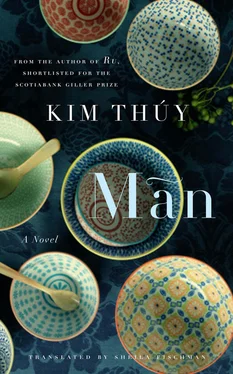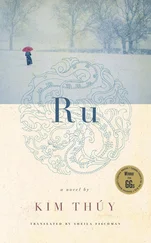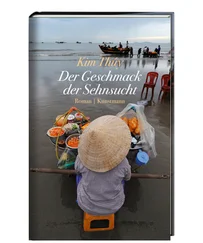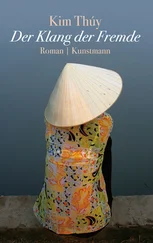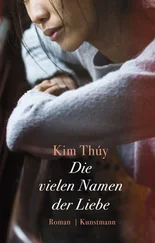Chị ), Aunt (
Cô ) and Great-Aunt (
Bác ). No one held it against him that he came from elsewhere, from a place where personal pronouns exist so that they can remain impersonal. In the absence of those pronouns, the Vietnamese language imposes a relationship from the very first contact: the younger of the two interlocutors must respect and obey the elder, and conversely, the elder must give advice and protection to the younger. If someone were to listen to a conversation between them, he would be able to guess that, for example, the younger one is the nephew of one of his mother’s older brothers. Similarly, if the conversation were taking place between two people with no family ties, it would be possible as well to determine whether the elder is younger than the parents of the other. In the case of my future husband, he might have partially expressed his interest in me if he’d called Maman
Bác , because Great-Aunt would have elevated Maman to the rank of his parents and would have implied her position of mother-in-law. But uncertainty had mixed him up.
quạt máy

fan
TO OUR AMAZEMENT, he came back the following day with offerings: a fan, a box of maple cookies and a bottle of shampoo. This time, I was obliged to sit between Maman and the matchmaker, across from the man and his parents, who were making a display on the table of photos that showed him at the wheel of his car, standing in front of some tulips, and in his restaurant holding two big bowls with his thumb nearly touching the scalding broth. Lots of photos of him, always alone.
hoa phượng

poinciana
MAMAN AGREED TO A third visit two days later. He asked for some time alone with me. In Vietnam, cafés with their chairs facing the street, like in France, were intended for men. Girls without makeup or false eyelashes didn’t drink coffee, at least not in public. We could have had smoothies with soursop, sapodilla or papaya at the place next door, but that patch of garden with its blue plastic stools seemed reserved for the veiled smiles of schoolgirls and the timid touches of young lovers’ hands. Whereas we were merely future spouses. Of the whole neighbourhood, all that was left to us was the pink granite bench in front of the row of apartments for the teachers, including ours, in the schoolyard, under the poinciana tree heavy with flowers but with branches as delicate and graceful as a ballerina’s arms. Bright red petals covered the whole bench until he cleared part of it so he could sit down. I remained standing to look at him and regretted that he couldn’t see himself surrounded by all those flowers. At that precise moment, I knew that I would always remain standing, that he would never think of making room for me beside him because that was the sort of man he was, alone and lonely.
con sóc

squirrel
I OFFERED HIM THE glass of lemonade with salt lime that my mother had prepared for him. He reminded me of those brown limes marinated in salt, warmed in the sun and altered completely by time, for his eyes were not old but aged, almost blurred, faded.
“Have you ever seen a squirrel?”
“Just in books.”
“I’m leaving tomorrow.”
Silence.
“I’ll send you the papers.”
Silence.
“We’ll have children.”
“Yes.”
He gave me his address and phone number on a sheet of paper folded in two. He left, walking slowly and unobtrusively like the soldier who had given Maman this poem, also written on a page folded in two:
Anh tặng em
Cuộc đời anh không sống
Giấc mơ anh chỉ mơ
Một tâm hồn để trống
Những đêm trắng mong chờ
Anh tặng em
Bài thơ anh không viết
Nỗi đau anh đi tìm
Màu mây anh chưa biết
Tha thiết của lặng im
I offer you
The life I have not lived
The dream I can but dream
A soul I’ve left empty
During sleepless nights
As I go to you I hold as an offering
The poem I have not written
The ache towards which I strain
The colour of the cloud I haven’t known
The longings of silence.
áo dài

tunic
HIS NAME WAS PHƯƠNG. Maman had known him since he’d started playing a version of pétanque, bowling with sandals instead of steel balls. She noticed him because he always missed his shot when she passed by him on the way home from school. His teammates said that Maman brought him bad luck. As for him, he waited for his chance every day at the same time, even if he did not yet know what he was waiting for. He was able to give a precise name to that expectation only when he saw her arrive for the first time in a white áo dài , the uniform of her new school, whose name was embroidered in blue on a label sewn between her shoulder and her left breast. In the distance, the panels of her tunic blowing in the wind transformed her into a butterfly in gentle flight, destination unknown. From that precise moment, he never missed a single outing of Maman’s class and he followed her, keeping his distance, to her home.
guốc

wooden sandals with heels
HE SPOKE TO HER for the first time long afterwards, when the heel of Maman’s shoe broke, as her half-brothers and half-sisters had predicted would happen. He rushed to her spontaneously to offer her his own sandals, then took off with the broken-heeled shoe. He was surprised to observe saw marks in the wood when he tried to repair it in the workshop of a cousin who made coffins. The next day, he was waiting for her in front of the bougainvillea that gave a softening effect to the strict metal of the front door of the judge’s house. As soon as he saw Maman’s foot on the first paving stone of the path, he bent down to place the shoes in the right direction on the threshold. To avoid compromising Maman’s reputation, he stepped away a few metres. She slipped them on and then, in turn, placed in her own footprints Phương’s sandals, the ones that had let her continue home without getting dirty, without stopping, without crying.
mưa

rain
EVER SINCE PHƯƠNG’S SHADOW had been following hers, she’d stopped crying under her umbrella, which had been pierced with a needle and looked like a sieve, because Phương’s was always there to protect her before the first drop fell and even before Maman had caught sight of the first grey cloud. And so she carried two umbrellas, one beneath the other, and Phương, bare-headed, walked three paces behind her. He had never wanted to take shelter under the same one because with the two of them, the rain could have dulled the lustre of Maman’s perfectly smooth black hair.
From outside the garden planted with longan, papaya and jackfruit trees, it was impossible to hear Maman’s silence. No one aside from the servants could have imagined that her half-brothers and half-sisters made a game of breaking every other tooth in her comb and cutting locks of her hair while she slept. Maman was able to convince herself of the innocence of their acts, or the fact that the acts flowed from their very innocence. She remained silent to preserve that innocence as well as her father’s. She did not want her father to see his own children tear one another to pieces, for already he was both witness and judge of the ripping apart of his country, its culture, its people.
Читать дальше
